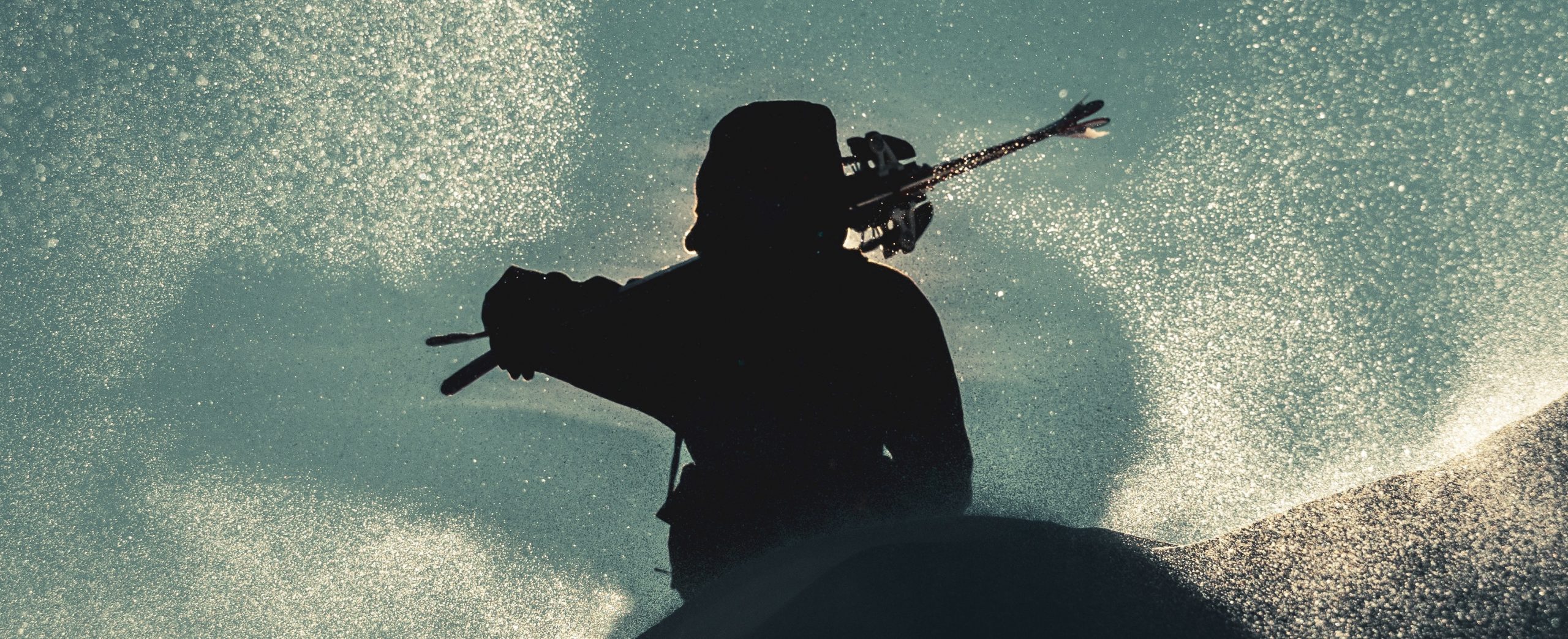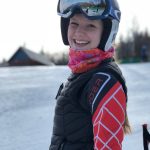Broken femur, fractured tibial plateau and fibular head, stress fractures, tendonitis, among many others were the injuries that seemed to define my skiing career. Just when I thought I had made it through my first entire season with no significant injury, the worst one hit. Number two in the Reynolds division, racing for University of Maine at Farmington, I had the best season in my personal history and was on cloud nine walking into the last two races at my home hill Saturday, February 17, 2018. My first run of four that day, 8 gates from the finish of this amazing dual panel slalom course and I was in the b-net. After my coach untangled me from the net, and helped me clip into my skis, I was sent to the trainer at the bottom of the course and the rest was a blur. Hospital, X-rays, bad news, and so much frustration. All I wanted was to take my other three runs that day.
Surgery was Wednesday the 21st when I had a plate that went from just below the knuckle, to just above my wrist joint in my pointer finger. Followed by 9 other screws in the hand.
In late August 2018, I was presented with what felt like the hardest decision I had ever had to make. The plate was causing serious wrist pain, but if I were to have it removed I could not race my 2018-2019 season.
There it was, hanging over my head, this awful decision that I did not want to make for myself. After a few weeks and many conversations with many different people, I had decided to go ahead with surgery and become an assistant coach for the UMF Alpine team for the season.
Along with coaching, I was presented with a new opportunity, to guide the visually impaired athlete on our team. I was told January 1, 2019 would be my first day on skis and I was beyond excited and counting down the days until I could click back in and dive into this new role as a coach and guide.
Mackenzie MacDonald is one of the most amazing people I have ever met. Her role is to put all of her trust in me and not hold back as she follows me down a course that she cannot see very much of. She is not completely blind, however she typically cannot see more than one gate length ahead of her while on the race course, depending on the weather and how much light there is. She also has no depth perception, so when the snow surface changes, that is a guides job to give her a heads up. I do this through a microphone we both have on the sides of our helmets.
I have been guiding Mackenzie for two seasons now and I could not be more grateful that this opportunity was given to me in 2018. I never thought that I would feel the same fulfillment and excitement to race if I wasn’t doing it myself, but being a guide creates so much more. It has also made me realize how much of a difference having support at races makes. Along with guiding Mac down the course, I am her personal cheerleader as well as her advocate in many situations.
This opportunity has given me a whole new community in the ski world that I never knew was there. This opportunity has also given me a built-in best friend, someone who I spend almost all days of the winter with (as well as many during the other seasons), many long drives, and someone who is willing to listen to my tone deaf singing while we are free skiing. We have become “Mac and Cheese,” a nick name given by a close friend at Paralympic Nationals the end of our first season together.


